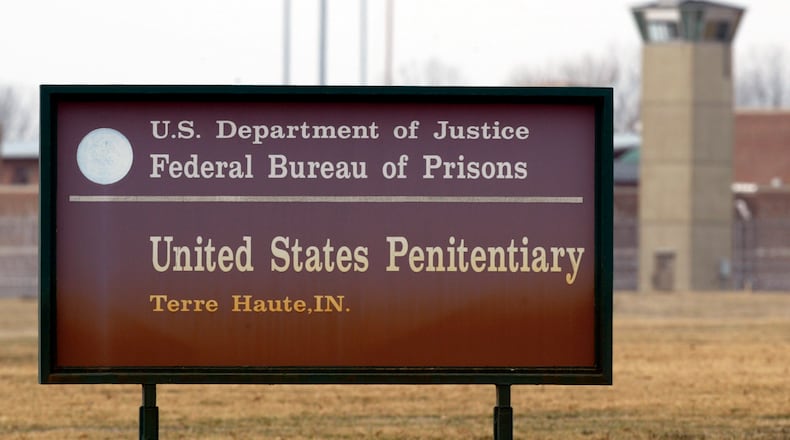One bludgeoned a prison guard to death. One raped and killed a nurse practitioner. Another fatally stabbed a postal worker.
The three men, sentenced to death by Georgia juries, are among roughly 60 inmates who sit on federal death row. While they were not listed Thursday by the U.S. Justice Department as the first five condemned prisoners now set to be executed since 2003, they could be scheduled to be put to death by lethal injection sometime next year.
» RELATED: Trump Administration to resume capital punishment
In 1997, Anthony George Battle became the first Georgia man to receive a federal death sentence since Congress restored capital punishment in 1988 under U.S. law.
Battle was sentenced to die by an Atlanta jury for the Dec. 21, 1994, killing of 31-year-old guard D’Antonio Washington. Battle repeatedly struck Washington in the back of the head with a ball-peen hammer at the Atlanta Federal Penitentiary.
At the time, Battle was already serving a life sentence for the 1987 murder of his wife, a U.S. Marine stationed at Camp Lejeune, N.C.
Battle, whose lawyers said he was schizophrenic, was given a chance at the end of his trial to ask jurors to spare his life. Instead, he told them that Washington “died like a dog.”
In 2003, Meier Jason Brown received a death sentence from a federal jury in Savannah. On Nov. 30, 2002, the Liberty County man showed up at a post office in Fleming and stole $1,175 in money orders.
As the robbery unfolded, Brown stabbed postmistress Sallie Gaglia 10 times as she tried to defend herself. He left the 48-year-old woman to die lying face down on the floor, according to court records.
A year after Brown’s trial, a federal jury in Gainesville sentenced William LeCroy Jr. to death for raping and killing a nurse practitioner after she arrived at her Gilmer County home from a shopping trip with her fiancé. On Oct. 7, 2001, LeCroy slit Joann Tiesler’s throat and repeatedly stabbed her in the back before driving off in her Ford Explorer.
LeCroy’s case became highly unusual because six years after he was sentenced to death, his brother, Georgia State Trooper Chadwick LeCroy, was shot and killed by a career criminal who should have been in jail without bond for a pending criminal case.
On Dec. 27, 2010, during a routine traffic stop for a broken taillight, Gregory Favors sped away from Chadwick LeCroy and crashed his car near the intersection of Hightower Road and St. Paul Avenue in Atlanta. When LeCroy, 38, approached, Favors pulled out a gun and opened fire, fatally striking the trooper in the neck.
Fulton County prosecutors sought the death penalty against Favors. In 2014, however, they allowed Favors to plead guilty in exchange for a sentence of life in prison without parole.
About the Author
Keep Reading
The Latest
Featured



